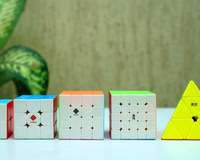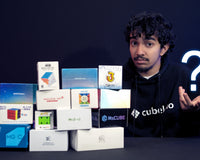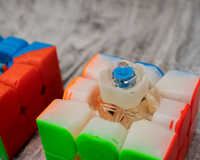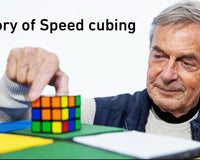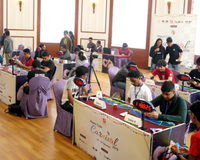Introduction
A vast majority of people deal with stress by distracting themselves with a hobby or pastime. They like to choose hobbies where they can:
i) Challenge themselves
ii) Learn new skills
iii) Improve their cognitive and Physical abilities
iv) Find their true self.
I am here to show you how cubing can help in all these aspects.

Not just a toy
A common misconception is that the Rubik’s Cube is a children’s plastic toy. While it’s easy to make this assumption after seeing a cube in every toy store you have visited since you were a child, there is a whole new world hiding behind this puzzle.
Think about this:
Would you call an amateur chess set a toy? Just like a Rubik’s cube, it’s made of plastic, has pieces that move and it makes for a fun game to pass your time, or practice to a level where you can compete for recognition and prizes. That last bit sounds more like a sport, doesn’t it? You don’t need to get that far to enjoy the richness of cubing though.
To draw some parallels, once you are past the learning stage of Chess, it can be frustrating to lose games to others, or not spot moves that you should have.
This is not the case with the Rubik’s cube. Once you have learnt how to solve one, it can feel almost therapeutic to solve a cube in your free time, especially if you have a busy schedule and/or are stressed otherwise.
Below is a tutorial I would recommend to learn how to solve the 3x3 Rubik’s Cube from start to finish:
High Stimulation
As you know, the Rubik’s cube has 6 colours, and when jumbled up can look quite chaotic. However, the process of putting all the pieces in their place and watching the cube gradually look more and more solved can be highly stimulating.

Even for someone who doesn’t know how to solve a cube, looking at the top professional solvers do a solve is in itself quite stimulating, especially for children. This can inspire them to take up cubing as a hobby.
I recall when I was first getting into the sport and watched the top solvers using the CFOP method. The last step of this method involves solving the top colour fully and then doing an algorithm to solve the rest of the cube.
Various Types Of Puzzles

Once you are done learning the regular 3x3 Rubik’s Cube, you would be glad to know it doesn’t stop there. There are puzzles way beyond 3x3, ranging from 2x2 to 7x7 in the WCA category and more. There are also shapeshifting puzzles like the square-1 and gear based puzzles like the Rubik’s Clock. Unlike many other hobbies, cubing has a massive amount of variety and you have lots of puzzles to choose from.
Learning Never Stops
Tying into the previous point, there is no end to learning even after picking up a new puzzle and learning the basics. There are always more algorithms, techniques and finger tricks waiting around the corner. This is perfect for those who destress by getting into a hobby involving heaps of learning and improving.
I highly recommend Xskills, a platform designed by the best Rubik’s cube coaches in India, including myself, for cubers who want to learn and improve.

Competitive Hobby
Once again, tying into the previous point, the learning rabbit hole leads you down to the world of competitive speedcubing. The governing body for cubing competitions is the World Cube Association (WCA). You can find and register for a competition near you on the WCA competitions page here:
https://www.worldcubeassociation.org/competitions
These competitions are open to everyone as long as they know how to solve the puzzles mentioned in the events section of the competition page. There are also no age categories and everyone competes with each other, while at the same time competing with their previous self, trying to beat their personal records across a multitude of events.

Competitions serve as a productive and rewarding way to spend your weekends, and also give an excuse to travel if you choose to compete in a nearby city. All of these contribute to a great way of destressing for school students, college students and working professionals alike.
Conclusion
I highly encourage anyone who hasn’t been to a WCA competition to attend one, as the social aspect of these events far outweigh the competitive aspect for first time attendees. You will meet like minded people across various ages and this can contribute to your social and personal development.
Cubing as a hobby has been a huge part of many people’s lives. It has shaped people and helped them find their true self among the chaos of life. But even if you choose to have it as a pastime, it can help you relax in your day to day life, and leave a lasting impact.
About Author
Shubham Maharana, an all-rounding speedcuber from Mumbai, has over 8 years of experience, starting cubing at 9 and competing at 11. He has won 23 WCA medals across 6 events, including 2nd in India for 2x2 Single and 7th nationally for Sum of Ranks. Shubham also became one of India’s youngest competition organizers at 14.

















